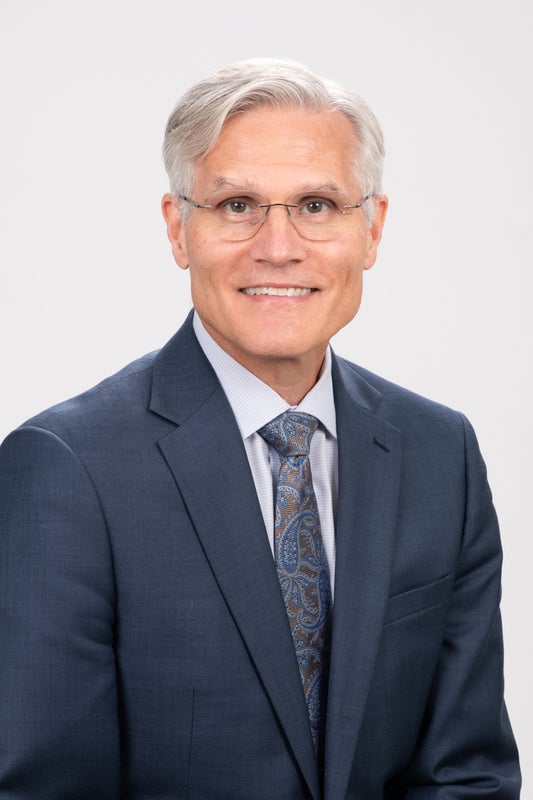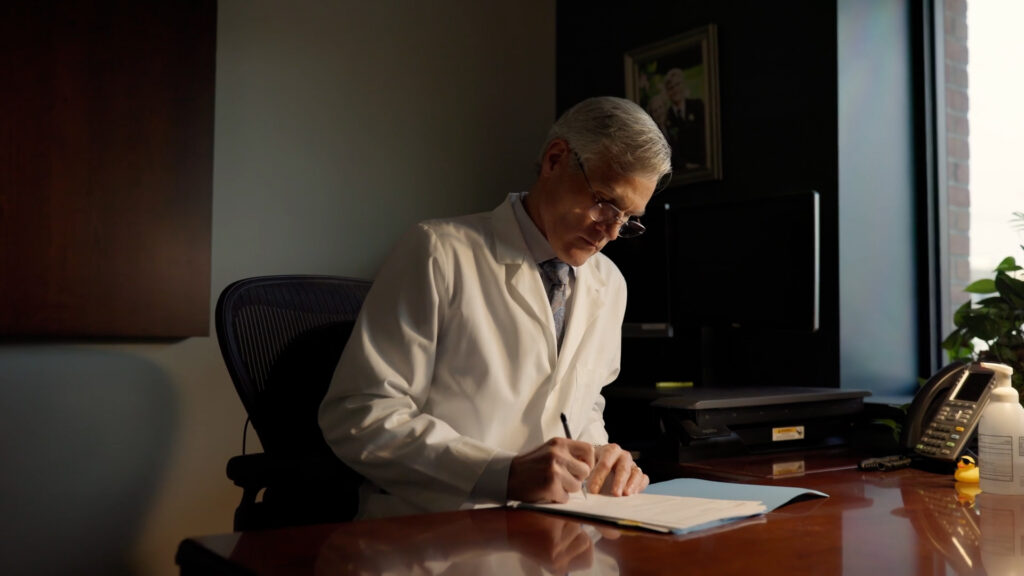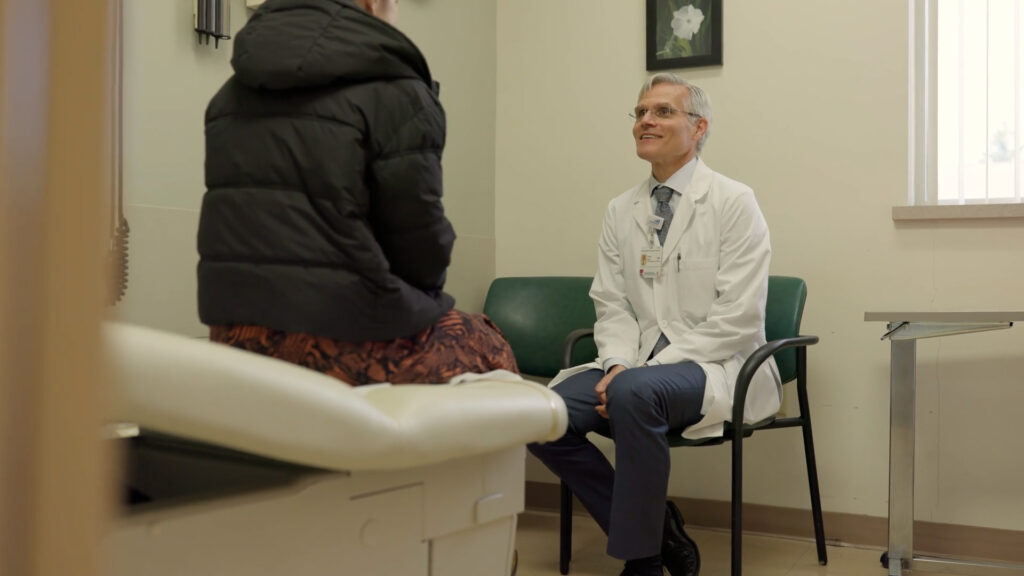


PARTNERS IN PHARMACY
Robert R. Mayo, MD
“Pharmacists make a huge difference in clinical care. … Without pharmacists, we couldn’t even function.”
-Dr. Robert R. Mayo
Pharmacists have a highly respected and highly visible role at Rochester Regional Health — and that’s just the way it should be, according to its Chief Medical Officer, Dr. Robert Mayo.
“In our health system, we have a number of pharmacy specialists for ICU, antibiotic stewardship, anticoagulation stewardship, and other different specialty interests. And they are just tremendous partners. Pharmacists make a huge difference in clinical care.”
Dr. Mayo has been a nephrologist for more than three decades and spent most of his career in the Rochester, New York, region. In his clinical practice, he has enjoyed countless collaborations with his partners in pharmacy.
Pharmacists have helped his nephrology team ensure the highest-quality care for patients with kidney conditions. As one such endeavor, they developed a vancomycin dosing strategy and level measurement protocols for people undergoing dialysis.
Pharmacists have helped his nephrology team ensure the highest-quality care for patients with kidney conditions.”
“[The clinical pharmacists] totally handle that once the vancomycin order has been written. That has really simplified it for the doctors and greatly improved the quality of the dosing process for our patients.”
In his leadership role at Rochester Regional Health, Dr. Mayo works hand in hand with the Vice President of Pharmacy to optimize patient care and address system-wide challenges. Together, they planned the health system’s pharmacy and therapeutics (P&T) committee. They hold weekly medication safety huddles with representatives from across the organization.
“[The weekly huddle] is a very dynamic conversation between frontline team members, leaders, and pharmacists about issues that are happening in medication safety. It’s a really great communication and dialogue — and pharmacists have a pretty visible role.”

When it comes to antimicrobial stewardship, he notes that clinical pharmacists are the “primary drivers. … They do the lion’s share of that work” to minimize the development of antimicrobial resistance, reduce adverse events, encourage cost-effective care, and improve patient outcomes.
The pharmacy team is also a major partner in managing drug shortages at Rochester Regional Health, including during the recent nationwide IV fluid solution shortage. “They changed all their IV piggyback administration to IV push and worked with the nursing team on education for IV push. They directly sourced some of the supplies. Pharmacy was amazing during that time.”
Then there was the COVID-19 pandemic, which challenged the healthcare field in unfathomable ways. Pharmacists not only helped treat patients but also cemented their status as frontline workers by administering vaccines to the Rochester community, as was true across the country.
Pharmacists understand the complexity of drug assessment, drug interactions, drug dosing, and all that that’s going on [as part of] that body of work. They always come incredibly well-prepared and really add a lot of value to the clinical care that we give as physicians”
All in all, Dr. Mayo appreciates his pharmacy colleagues for their breadth of skills, depth of clinical knowledge, and eager collaboration with the rest of the healthcare team.
“Pharmacists understand the complexity of drug assessment, drug interactions, drug dosing, and all that that’s going on [as part of] that body of work. They always come incredibly well-prepared and really add a lot of value to the clinical care that we give as physicians. Without pharmacists, we couldn’t even function.”
Leadership, teamwork, and commitment to excellence: From this physician’s perspective, that’s what it means to be your pharmacist.
